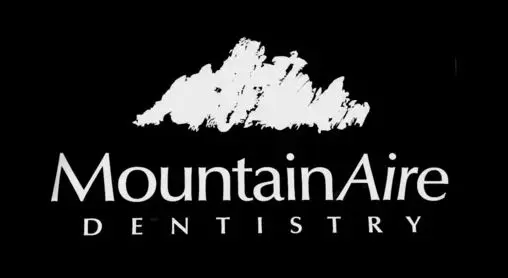Tips for Preventing Tooth Decay
Extractions: Sometimes Pulling Teeth Can’t Be Avoided
December 4, 2017What to Do with a Chipped Tooth Injury
December 6, 2017Tips for Preventing Tooth Decay
Tooth decay is the destruction of your tooth enamel over time. Tooth enamel–the hard outer layer of your teeth–is sturdy and strong with most activities. However, when it comes to substances like plaque, it can weaken over time. Plaque is an acidic substance that forms on the teeth from bacteria and sugars in the foods you eat. This plaque is your tooth’s worst enemy and can quickly destroy your oral health. Tooth decay is completely preventable with the right knowledge and habits. Learn more about tooth decay and what you can do to avoid it!
Tooth Decay and Your Teeth
The American Dental Association tells us that tooth decay is the destruction of your tooth enamel. The tooth enamel is the hard, outer layer of your teeth. Although this tooth enamel is tougher than many other parts of your body (minus your bones), it can still weaken over time. How? Plaque. Plaque is a sticky film of bacteria made from the sugars in the foods you eat that mix with bacterias in the mouth. The more sugar you eat, the higher your risk for plaque. Plaque loves to stick to the surface of your teeth where it can then eat away at your tooth enamel. The more this happens, the weaker that enamel becomes, eventually creating openings in the tooth where plaque can seep inside.
Once inside, it can decay your tooth, causing cavities. Tooth Decay is also known by the names of dental caries or cavities. Most people have a cavity at some point or another. Decay doesn’t just happen with adult teeth either. Decay can happen to baby teeth, so it’s very important to monitor your child’s teeth.
What Do We Know?
We know that not brushing your teeth is one of the easiest ways to ensure that you will have tooth decay. According to the National Institute of Dental and Craniofacial Research, tooth decay is one of the most prevalent diseases in both children and adults. How do you know if you have the signs of cavities? Colgate tells us that you will have symptoms such as pain when chewing, sensitivity to hot or cold foods/drinks, sensitivity to sweets, or you will have a toothache. Sometimes you may not have any signs or symptoms at all if a cavity is present. This is generally in the early stages of tooth decay. Once this decay becomes more significant, you will start to feel more severe symptoms. When dental caries goes untreated, it will simply continue to rot away your teeth to the point where a root canal or dental extraction becomes necessary. We want to prevent procedures like those from ever occurring if possible. The good news? Cavities are 100% preventable with the right care.
Preventing Tooth Decay Early
Children can receive cavities just like adults can. In some cases, children are prone to more cavities because of sugar intake. Besides being healthy for the body, it’s also smart to limit sugar intake to protect the teeth. The more sugar you or your child ingests, the more plaque can be made. Children should also see the dentist early to prevent cavities. A child should first see the dentist after the first tooth has erupted in the mouth, or by age 1. This is a time when most children have started receiving teeth.
Some studies show that about 4 in 5 children have cavities. How can you prevent them? Be vigilant in teaching a child how to brush their teeth properly. Most children don’t have the motor skills to hold a toothbrush well and clean the teeth as thoroughly as an adult. Help your child with brushing several times a day for the first few years and make sure to clean the gums and the teeth once a baby has started to receive teeth. This can prevent many problems with dental caries in baby teeth.
Tips and Preventative Measures
Maintaining good oral hygiene is one of the most important things you can do for your teeth and gums. Healthy teeth not only help you look good, but make it possible to eat and speak properly, especially without pain from cavities. Daily preventative care can help you maintain a healthy mouth. What should you do to keep your mouth healthy? Brush the teeth at least twice a day. Brushing after every meal will help you avoid cavities that much more. You should also floss your teeth every single day to get plaque and food particles out from between the teeth. Mouthwash and fluoride use can also help strengthen the teeth and rid the mouth of harmful bacteria. All of these methods will help stop problems before they begin, but they must be done daily!
At our office, we have services such as dental cleanings and comprehensive exams. Every single patient (including children) should receive these twice a year, or every 6 months. Through these examinations, we can thoroughly observe the teeth inside and out with digital x-ray imaging and physical probing and cleaning of the teeth. Patients who keep up on their cleanings and exams generally have fewer cavities than those who don’t. It’s worth the short visit to the dentist to keep a healthy mouth!
See the Dentist
One of the best ways to prevent cavities is to stay on top of your oral health. With most good things, it takes work to achieve success, and great oral health is no exception. Your dentist can quickly and easily spot the signs of dental caries and other problems with the teeth. If you have not seen the dentist in the last 6 months, come schedule your appointment with Dr. Bockrath today. Simply call our Mountain Aire Dentistry office at (303) 731-7755!
When you visit our Broomfield dental office, your smile is our top priority. Our Dentists invite you to experience the difference a warm and caring team can provide for you and your family. Enjoy a unique and comfortable dental experience designed to bring a healthier and happier smile back into your life. We invite you to call or visit our Broomfield dental office and discover the exceptional difference we offer to those we serve.













